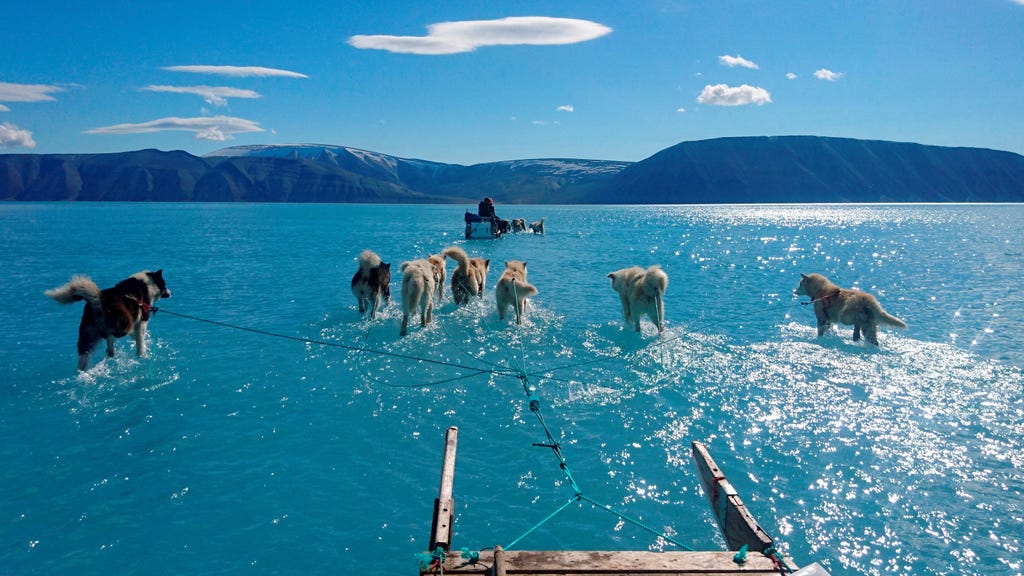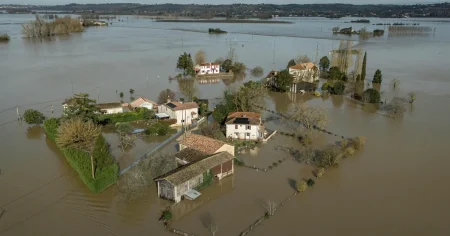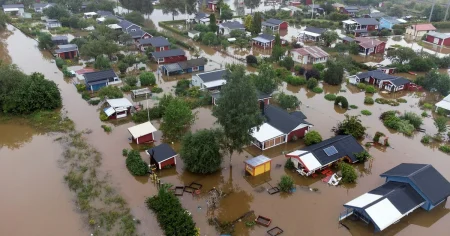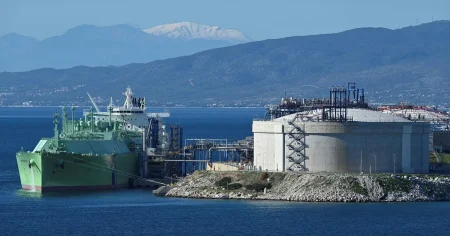The open letter, signed by 48 prominent scientists, expresses profound concern that the risk of a collapse of the Atlantic Meridional Overturning Circulation (AMOC), commonly referred to as the Gulf Stream system, has been severely underestimated by current climate models. This system plays a crucial role in regulating global climate patterns, particularly in Northern Europe, and its potential collapse poses a significant threat of climate catastrophe to the Nordic region. The scientists argue that existing assessments fail to fully capture the complex interplay of factors influencing the AMOC’s stability, leading to a dangerous underestimation of the tipping point at which irreversible decline could occur. The letter urges Nordic governments to acknowledge the urgency of this situation and take immediate action to mitigate the risks.
The scientists highlight the critical function of the AMOC in transporting vast quantities of warm water from the tropics northward, contributing significantly to the relatively mild climate experienced in Northern Europe. A collapse of this system would disrupt this heat transport, potentially leading to a drastic drop in temperatures across the Nordic region. The consequences could be severe, impacting agriculture, infrastructure, and overall societal stability. Furthermore, the letter warns that the impacts would not be confined to the Nordic region. A significant disruption of the AMOC could trigger cascading effects on global climate patterns, exacerbating extreme weather events and further destabilizing the global climate system.
The scientists argue that current climate models, while useful, are inherently limited in their ability to accurately capture the full complexity of the AMOC’s dynamics. Specifically, they point to the models’ inability to fully account for the influence of meltwater from Greenland and other Arctic sources. The influx of freshwater into the North Atlantic can disrupt the salinity gradient that drives the AMOC, acting as a braking mechanism on the circulation. This freshwater influx, combined with other factors like warming temperatures and changing precipitation patterns, is increasingly pushing the AMOC towards a critical threshold, beyond which a rapid and potentially irreversible decline could occur. The letter emphasizes that relying on models that underestimate these complex interactions puts the Nordic region and the world at a greater risk of unforeseen and catastrophic climate change.
The scientists express their alarm at the perceived lack of urgency demonstrated by Nordic political leaders in addressing this imminent threat. Professor Johan Rockström, one of the signatories of the letter, underscores the gravity of the situation, stating that the apparent disregard for the potential consequences of an AMOC collapse is remarkable. The letter calls for immediate and decisive action from Nordic governments, including a significant increase in investment in climate research, particularly focusing on improving the accuracy and comprehensiveness of AMOC modeling. Furthermore, the scientists urge policymakers to prioritize the implementation of aggressive emissions reduction strategies to mitigate the underlying drivers of climate change, thereby reducing the pressure on the AMOC and decreasing the risk of its collapse.
The urgency of the scientists’ plea stems from the potential irreversibility of an AMOC collapse. Once the system crosses a certain tipping point, the changes become self-reinforcing, making it exceedingly difficult, if not impossible, to restore the prior stable state. The consequences of delaying action could be devastating, locking the Nordic region and the world into a future of significantly altered and potentially hostile climate conditions. The letter emphasizes that preventative action now is far less costly than attempting to adapt to the catastrophic consequences of an AMOC collapse. The cost of inaction, both economically and in terms of human suffering, would be immeasurable.
The open letter serves as a stark warning to Nordic governments and the global community. The potential collapse of the AMOC represents a significant and imminent threat to the climate system, with particularly severe implications for the Nordic region. The scientists’ call for immediate and decisive action underscores the urgency of addressing this issue. They emphasize that relying on potentially flawed climate models and failing to acknowledge the full extent of the risk is a dangerous gamble with potentially catastrophic consequences. The time for debate is over, the scientists argue. The time for action is now. The future of the Nordic region, and indeed the planet, depends on it.














